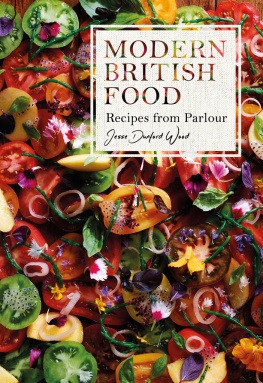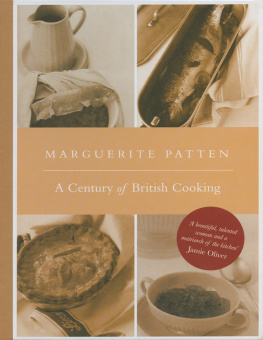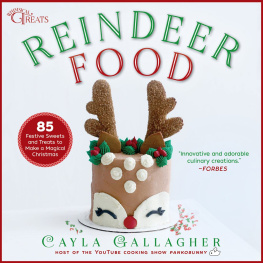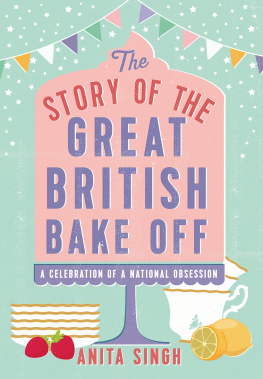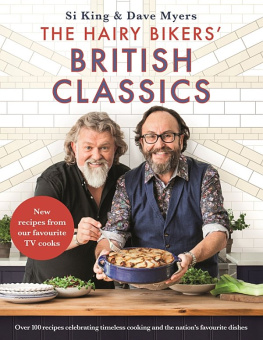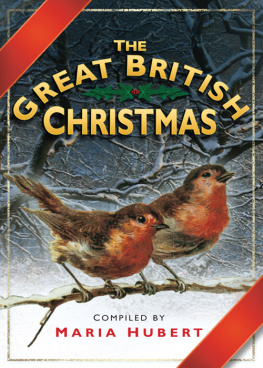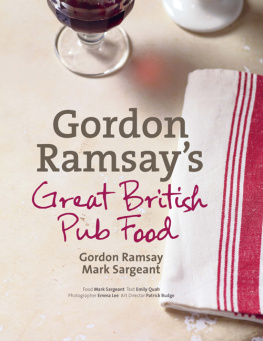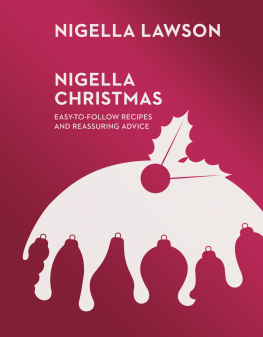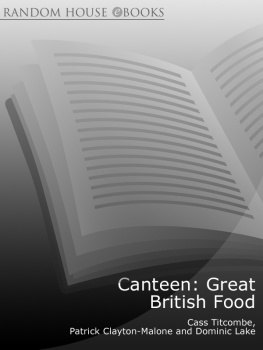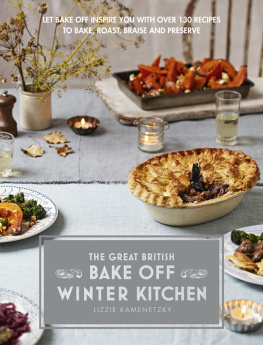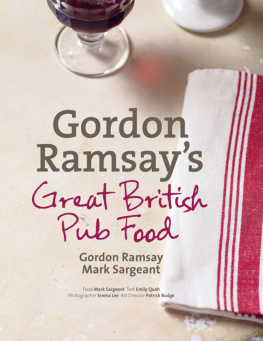


Dedicated to those close by my side every step of the way, Mrs Jesse, Ada and Monty, and to those that are missed, particularly Great Granny Angela, whose recipe will live longer than any of us.
C ontents
There are three types of cook
I ntroduction

C ooking has to be one of the most brilliant skills to have in life, regardless of whether you are a professional or not. It is an empowering gift, cookery; one that people often look up to and aspire to. It is a great skill that will also be a never-ending lesson of discovery.
Food can be fuel, but it cant help but give pleasure. It brings warmth, both physically and emotionally, to both those that yearn and crave it, but also to those who dont even know they need it. It brings joy and great excitement in celebration, and also offers comfort when youre feeling low or down. We love the nostalgic heart tweaks that food can bring, dishes that taste of times gone by, a mothers this or an old-fashioned that, memories of school dinners and scabby knees, past lovers, of times and places. It can bring strangers closer, and it so often bring families together. Food really is a healer, and no matter your opinion on it (and amazingly everyone does have one) it is something we all look forward to.
Growing up in an artistic family, food always seemed like such a great idea, another form of artistic expression, but it wasnt usually prioritised in our family and it too often got rather overlooked. We did have freshly baked bread (even if I did dream of sliced Mighty White at primary school), homemade jam and cakes at birthdays, but this is where my homemade family food memories really rather dry up. With all the buzzing creativity there was, food wasnt a hugely important part of the meal times, but being together, I think, was much more important. Burnt crusts, slightly undercooked spaghetti and the overly runny jam was ignored with the friendly glint of a rather too relaxed attitude to what was actually being made.
It is an empowering gift, cookery...
Once I reached teenage-dom and went to boarding school, I then had three meals a day provided with military discipline, on the dot of 7.30am, 12.15pm and 5.45pm. It was regular, dependable, familiar, and I thought, usually delicious. But it was only once I left the safety and comfort of the school routine and had to go out into the real world and fend for myself that I ever thought about food; where it came from, and how it came to be. And what a shock that was.
I would sit at home alone in my early art-college days eating slightly undercooked spaghetti with a sauce made from tomato pure and rubbery supermarket value range bacon strips far from the romantic and delicious Italian dish of smoked ham, fresh tomato sauce over some just-al dente papardelle that I might have been dreaming of. So I made a plan and a commitment to learn to cook, not be flustered by recipes of more than four ingredients (which too often is a common roadblock many people come up against) and stick to it. What is the worst that could happen?

Grandpa Tom in 1956 at the Dorchester. Some might think cooking has been in our genes, but he is still to master the very basics, even now at the age of 87. This photo is from the Daily Express, when he was a budding reporter 'posing' as a masterchef.
I then learnt to cook.
I cooked food that my then-landlord (and Grandfather) didnt complain about. I cooked biscuits that I took into art school, that disappeared much too quickly; I cooked a nearly romantic meal of Bolognese (not really recommending as a courting dish) for my new girlfriend using too much of dear Grandpas dry sherry; I ended up cooking (epic) dinners in the under-used dining room for the hungry hoards of student friends of mine, and loved the idea that I could set the scene with music, table decorations and lighting ask people to dress up even and then feed them food, drinks and have a brilliant time entertaining and hosting.
The seeds were then sown for the fantastically romantic idea of having an outrageously on-going-money-making-dinner-party, which some people might call a restaurant. I live that dream these days. And usually it is fun. Sometimes though, it is hard and tricky. Often it is heartwarmingly rewarding. Sometimes it is awkward and challenging, and occasionally we even make a little money. But I am living the reality of an independent host, and love all that comes with it.
When it comes to others though, I have found that people often fall into three camps when talking about cooking skills:
1 . Those with none;
2 . Those who are military conformists;
3 . And then those free-spirited adventurer types that take an idea and run with it.
I am rather hoping that this book can offer advice, guidance and even inspiration to almost all of those people.
It is rare, but not uncommon, to find people who have got all the way to middle age, occasionally even surviving to old age, who have NO skills in the kitchen. Those who rely on the food of others; be them spouses, relatives, supermarkets and their pre-packed offerings, and also more often than not, restaurants. People who pride themselves on their boiled egg and toast reportoire. This is my Grandfather.
The other camp, the military conformists, are those who religiously stick to recipes that have been followed, down to the last teaspoon of the spice they have never heard of and bought especially. Those who never stray from the holy grail of the words that someone somewhere has put down for them. I find there is a brilliant lack of responsibility these cooks have towards their cooking, as someone else has done all the thinking for them, but then again an endearing trust. Blaming the author or the instruction for any failures, but on the other hand always taking the applause when it goes well. This is my Father.
I have found that people often fall into three camps
The adventurers might look at a picture, could even stretch to reading the recipes, but will rarely follow what is written. They will get the gist and do an interpretation of it, put a bit of themselves into the dish, by using pistachios instead because they are in the cupboard or I used twice as much, as I didnt like the sound of what they suggested. Those people! Those people will understand what they are doing sometimes because they have really thought about it and considered the consequences. It is cooking from the heart. This is my Mother.
This book is all about giving you direction and inspiration of course, but also to feed you ideas of what you could do with these dishes as a base, even offering you alternatives, little nudges of versions and off-piste adventures you could go on to make them your own.
There is nothing more satisfying, and I still feel it every day, than making something lovely and sharing it with others. We do it on an industrial scale professionally, which has its challenges but also benefits, but I still love cooking for my wife and kids when there was apparently nothing in the fridge worth salvaging.

